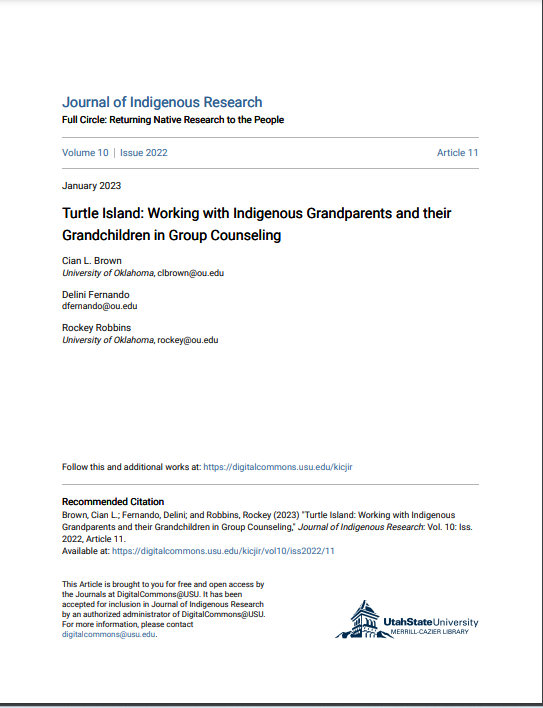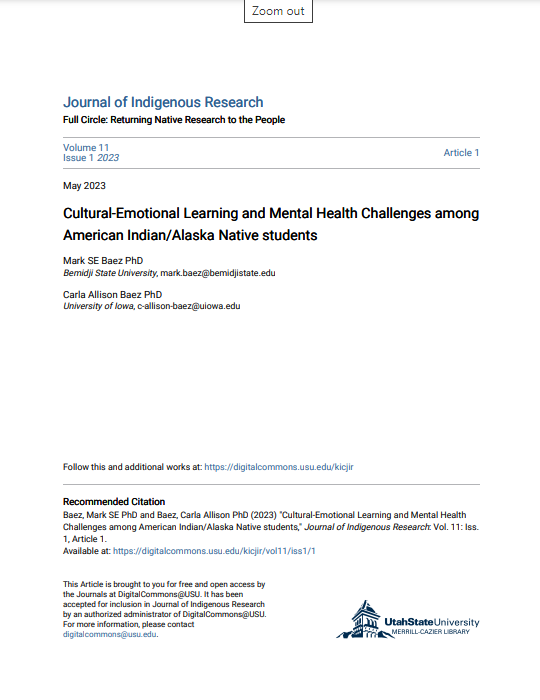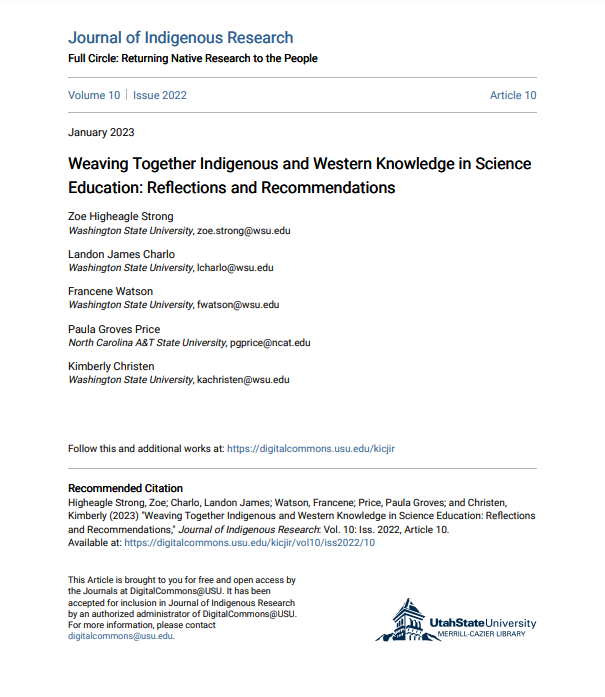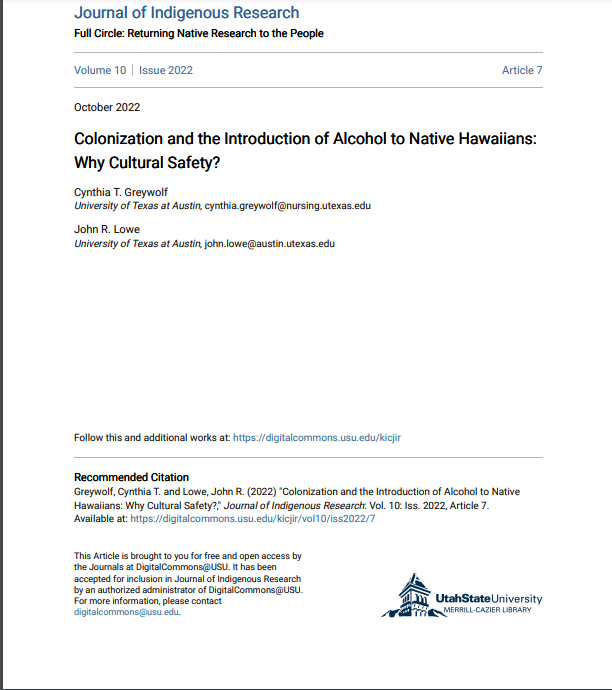Research Papers/Articles
Indigenous Knowledge in Creating and Benefiting from Zagheh in Bisotun Plain
2023
Author(s): Khanmoradi M, azizi N
This research aimed to answer in which period did the construction of troglodytic architecture begin in Bisotun and how long did their use continue? What were the components and architectural structure of these handholds?.

Turtle Island: Working with Indigenous Grandparents and their Grandchildren in Group Counseling
2023
Author(s): Brown C.L, Fernando D, Robbins R
The authors present activities and processes to support clinicians and their consideration for working with Indigenous clients. All phases of implementation, from participant and facilitator recruitment to the concluding honoring feast, as well as group activities, process questions, and accompanying projects, are described in detail.
Creating a Model for Faculty Success: Faculty Advancement Initiative for Black, Indigenous, Latinx, and People of Color at the University at Albany
2023
Author(s): Serrano CA, Vasquez E,Gayle DDB,Enriquez J,Dirlam J,Yuan XJ
The article discussed the findings of the BILPOC community initiative that was formed to provide support and opportunities for diverse workforce, while also creating a positive and sustainable scholarly environment, which might serve as a model for other institutions.

Cultural-Emotional Learning and Mental Health Challenges among American Indian/Alaska Native students
2023
Author(s): Baez SE, Baez CA
This paper examined the connections between cultural-emotional learning and academic achievement in AI/AN students through the cultural lens of practitioners and educators.

Weaving Together Indigenous and Western Knowledge in Science Education: Reflections and Recommendations
2023
Author(s): Strong ZS, Charlo LJ, Watson F, Price PG ,Christen K
In this conceptual paper, the authors discuss four key takeaways from their reflections: 1) Creating relational space for cultural values and practices, 2) Indigenous science education requires many educators with diverse expertise, 3) Respecting Tribal and individual autonomy and timelines, and 4) Remembering who the work is meant to serve. In summary, the authors highlighted important recommendations to be considered when weaving together ITEK and Western science to better serve and engage Native American youth.
Indigenous Americans Became Red: Racism as Justification for Exploitation of Native Americans
2022
Author(s): Dodge RV
This article presents how an admixture of humans first arrived in the western world during the last Ice Age and spread throughout both continents, developing more complex cultures and agriculture, then civilizations. The arrival of Columbus began colonization by white European countries, justified by bringing the indigenous population Christianity and European civilization.
Infusing Indigenous Knowledge Systems (IKS) into Teaching Integrated STEM Disciplines: An Empirical Project
2022
Author(s): Chahine IC
The overarching goal of this empirical project is to train teachers to use culturally relevant modules in STEM subjects in high need schools.
Sweetgrass Method: A Culturally Responsive Approach among American Indian and Alaska Native K-12
2022
Author(s): Baez MSE,Baez CA,Lavallie B,Spears W
The Sweetgrass Method is a culturally responsive approach to mental health for American Indian/Alaska Native Youth and serves as a process to communicate, collaborate, and continue ongoing supports. The Sweetgrass Method is applied in practice as an approach that encourages culturally responsive methods and culturally sensitive therapies as significant approaches.

Stereotypes and Judgments About American Indian Peoples: Results from an Experimental Study
2023
Author(s): Orr R, Sharratt K, Iqbal M
In this study the author tested how stereotypes might work against Native peoples and tribes, using a randomized survey experiment.

Colonization and the Introduction of Alcohol to Native Hawaiians: Why Cultural Safety?
2023
Author(s): Greywolf CT, Lowe JR
This article gives a brief historical account of the introduction and the impact of alcohol with Native Hawaiians. Indigenous researchers have identified colonization and historically traumatic events as precipitating causes of the current incidence and pervasiveness of alcohol use today. Interventions that reflect the history and traditions of Indigenous groups are generally not the basis of addiction treatment and intervention programs.



